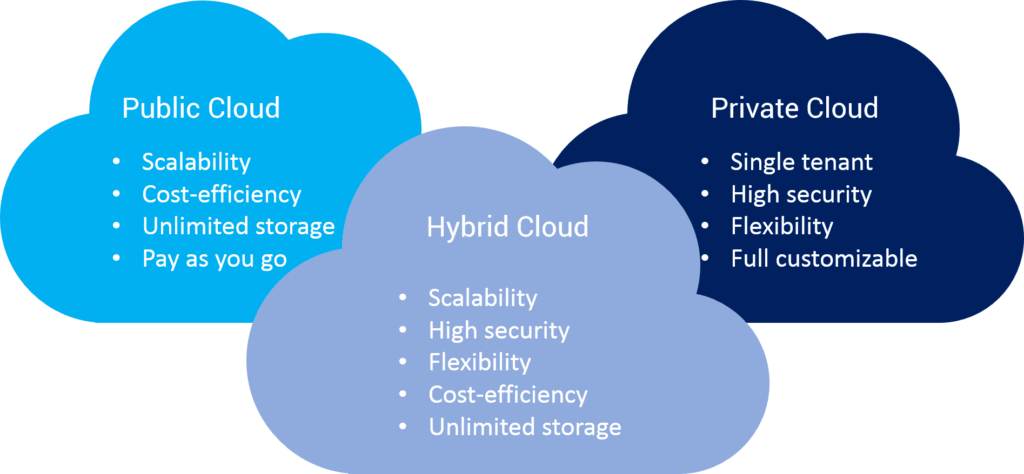
They most people talk about “the cloud,” it’s easy to think that it’s a single, monolithic entity. However, the truth of that matter is that there are many different forms of cloud computing, each with its own unique set of advantages and disadvantages. This means that the type that works for your web development business may not be right for another company. Choosing the proper setup for your needs is crucial if you want to get the most out of the technology, and that means understanding at least the key differences between the most common forms of the cloud.
In short, there are three kinds of cloud systems — public, private and hybrid. Public is the most popular, in which companies share the infrastructure provided and operated by a third-party company. Public cloud servers are used to communicate with certain users, develop software and other tasks. Although it offers a high degree of elasticity and scalability, it also gives you little control or customization. The fact that it is relatively inexpensive, however, may outweigh these limitations.
The private type of cloud is one that’s operated by a single organization purely for internal use. Typically used within highly regulated industries to secure sensitive data, it has the advantages of high flexibility and advanced customization. However, it is much more expensive to operate and requires a significant amount of oversight to keep it functioning as smoothly as it should.
The hybrid model, as the name suggests, combines public and private cloud resources into a single network. It provides the flexibility of the private model with the reliability of the public one. With this option, the added complexity and increased management requirements it brings make it a dicey proposition for many enterprises.
Which type of cloud is right for you? The answer depends a lot on your company’s specific circumstances and needs. To learn more about public, private and hybrid cloud systems, take a look at the accompanying resource.
Infographic created by HotWire Networks, a web hosting company

